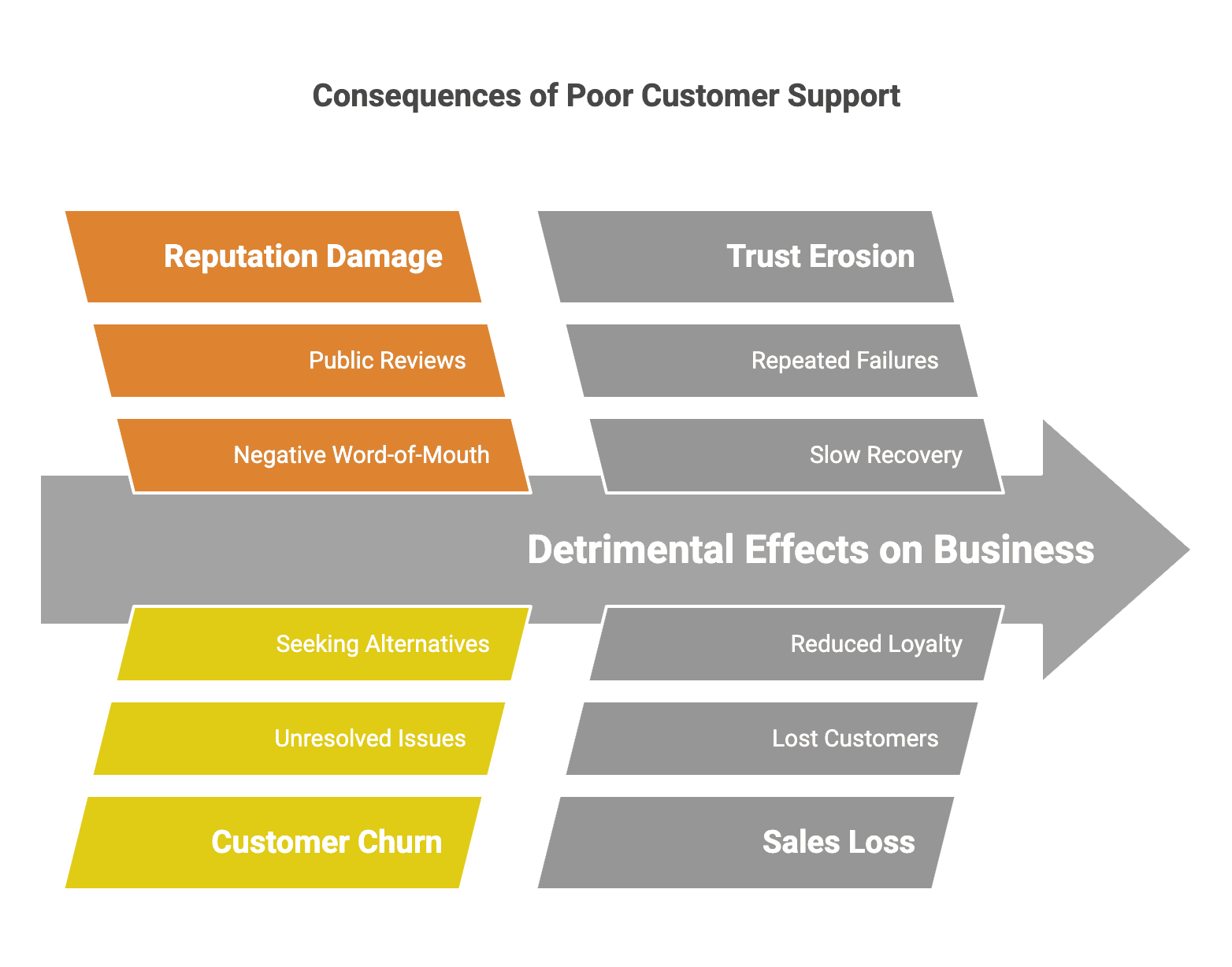Fast and reliable customer support can significantly influence how customers perceive a business. In a competitive market, providing exceptional support is no longer just an option; it’s a necessity. When customers feel their concerns are addressed swiftly and effectively, their overall satisfaction and loyalty toward the brand improve remarkably. This article explores the vital role that rapid and dependable customer support plays in ensuring positive customer experiences.
The Importance of Swift Response Times
Response time refers to the duration taken to answer a customer’s inquiry. In many cases, a quick response can alleviate potential frustrations and lead to happier customers. Research indicates that 78% of consumers expect an immediate response when they reach out for support. Long waiting times can be detrimental; customers may feel undervalued, leading them to consider alternatives.
By prioritizing swift response times, companies signal their commitment to customer satisfaction, reinforcing trust in their service. Notably, during peak business hours, customers often anticipate faster service. Businesses that anticipate this need and optimize their support processes can set themselves apart from the competition.
Building Trust Through Reliability
Reliability is another cornerstone of exceptional customer support. Customers want to know that they can depend on a brand to resolve issues whenever they arise. Providing consistent support can develop a lasting relationship based on trust. When customers repeatedly have a positive experience, they are more likely to return and even recommend the service to others.
A fundamental aspect of reliability includes setting realistic expectations. If a business promises rapid turnaround times, it must ensure that such commitments can be met. If suitable solutions are not available immediately, being transparent about resolution times is critical for maintaining customer trust. Using CX innovation and strategy can help develop more reliable customer interactions by identifying gaps in service and addressing them proactively. Establishing easily accessible support channels where customers can reach out whenever needed fosters a sense of accountability, enhancing the reliability factor.
The Impact of Personalized Support
Personalization reinforces customer connection and satisfaction. When support representatives utilize customer data and history in their interactions, it leads to tailored assistance. This approach demonstrates that the brand values each individual’s experience. Consumers are increasingly drawn to brands that understand their unique needs. According to a survey, 66% of consumers expect companies to understand their desires and expectations.
Personalized service goes a long way toward humanizing interaction. When customers feel recognized and appreciated, they are more likely to remain loyal. Incorporating customer feedback loops into service design can refine the personalization aspect. This practice can help businesses adapt services to better meet evolving customer needs.
Consequences of Poor Support
The detrimental effects of lackluster customer support cannot be understated. Customers who experience unresolved support issues often share their dissatisfaction with others, potentially harming the brand’s reputation. Research shows that a single negative experience can lead to a 70% chance of losing a customer. Poor support can also lead to higher churn rates. Once customers feel their needs are not being met, they will quickly look for alternatives, damaging customer retention rates.
Brands that regularly fail to meet customer expectations may find it challenging to regain their trust, even after addressing the initial issues. The ripple effect of inadequate support ultimately culminates in lost sales and diminished brand loyalty, creating a cycle that’s hard to break. Understanding these consequences is vital for businesses striving to enhance customer experience.
Empowering Support Teams Through Training
Proper training equips support teams with the skills necessary to provide excellent customer service. Employees informed on best practices, communication methods, and problem-solving techniques can tackle customer inquiries efficiently. Regular training sessions ensure that staff remain updated on the latest tools and advancements in customer support technology.
By encouraging team members to empathize with customers, businesses foster a more supportive environment, which translates to better customer experiences. A well-trained team can deftly navigate issues and build rapport with customers, leading to effective problem resolution. Investing in staff development not only enhances performance but also demonstrates that the company prioritizes service excellence.
Leveraging Technology for Enhanced Support
Incorporating modern technology optimizes support processes. Chatbots and AI-driven solutions can provide immediate responses to common inquiries, freeing human agents to focus on more complex issues. This technology allows companies to operate efficiently, decreasing wait times. Data analytics can also help identify patterns in customer interactions, enabling proactive measures to improve service quality.
Integrating Customer Relationship Management (CRM) systems allows businesses to track customer interactions and resolve issues faster. By harnessing technology, businesses can assess their support strategies and refine processes based on real-time feedback. Adopting the right tools enhances operational efficiency and contributes to overall customer satisfaction.
By focusing on training, embracing technology, and valuing customer feedback, businesses can vastly improve their customer support experience. Those who invest in these areas not only enhance satisfaction but also position themselves effectively in an increasingly competitive market.







































